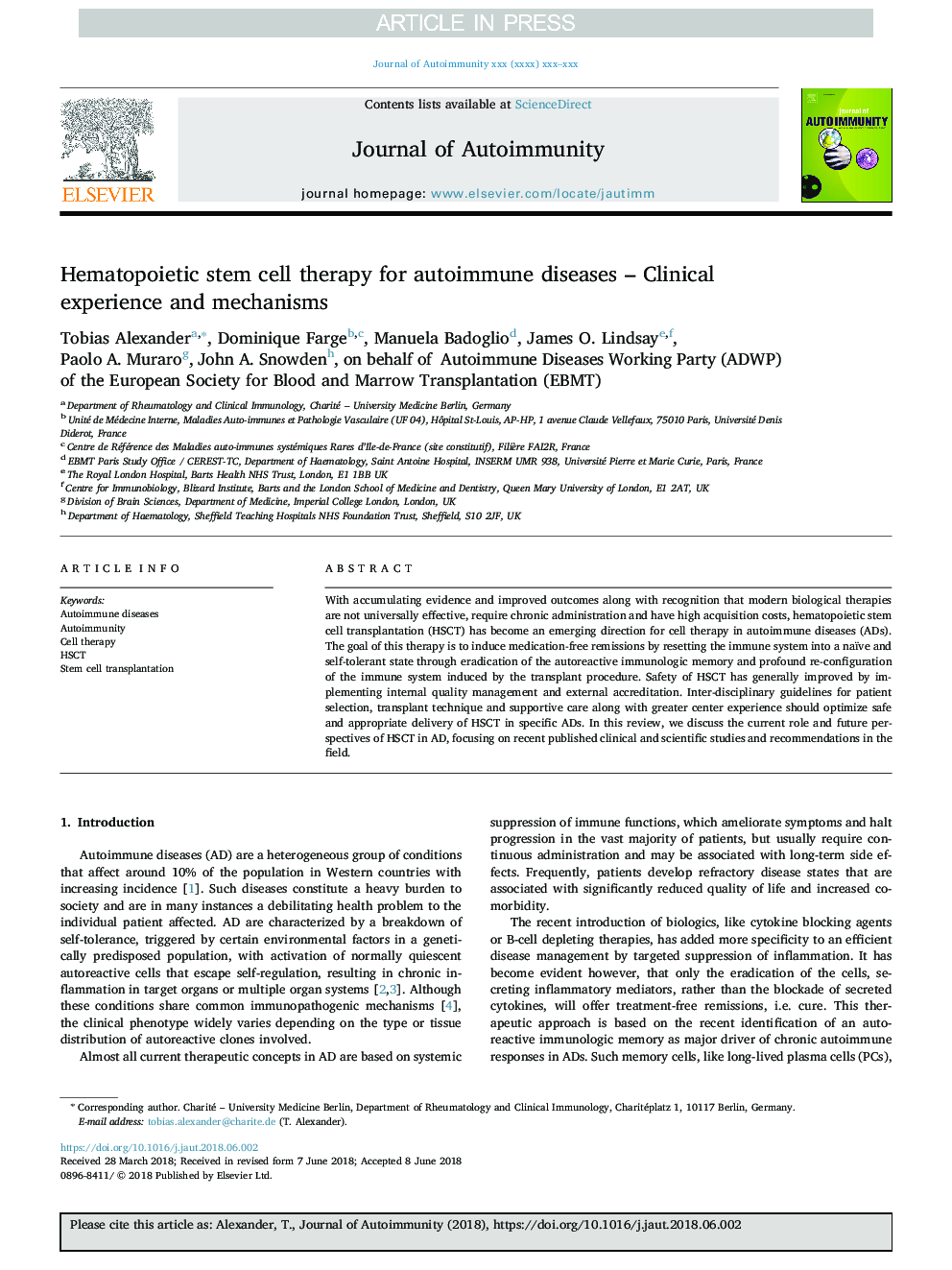| Article ID | Journal | Published Year | Pages | File Type |
|---|---|---|---|---|
| 8739491 | Journal of Autoimmunity | 2018 | 12 Pages |
Abstract
Concept of hematopoietic stem cell therapy in autoimmune diseases. A) An autoreactive immunologic memory may drive chronic autoimmune responses and represents a major barrier for curative therapeutic approaches in autoimmunity. Once developed, autoreactive memory cells migrate into inflamed tissues where they reside as tissue-resident memory cells, e.g. CNS-infiltrating T-cells in MS after crossing the blood-brain-barrier, kidney-infiltrating T-cells in SLE, skin-resident T-cells in systemic sclerosis or synovial T-cells in inflammatory arthritis. Likewise, autoreactive memory T-cells and plasma cells migrate into the bone marrow where they survive in dedicated survival niches. B) Current therapeutic concepts are historically based on chronic suppression of immune functions either with conventional immunosuppression or by targeting inflammatory cytokines, co-stimulatory signals or adhesion molecules. However, the autoreactive immunologic memory is largely unresponsive to these approaches. C) In contrast, hematopoietic stem cell transplantation is performed with the premise to eradicate autoreactive memory clones using chemotherapeutic agents usually in combination with polyclonal antibodies such as anti-thymocyte globulin (ATG) for in vivo T-cell depletion. D) Transplanted autologous HSC promote an extensive immune renewal providing a new and polyclonal repertoire of naïve T- and B-cells and a novel protective immunologic memory is generated. As a consequence, restoration of self-tolerance may be achieved resulting in long-term remissions that are not further dependent on chronic immune suppression.166
Related Topics
Life Sciences
Immunology and Microbiology
Immunology
Authors
Tobias Alexander, Dominique Farge, Manuela Badoglio, James O. Lindsay, Paolo A. Muraro, John A. Snowden,
